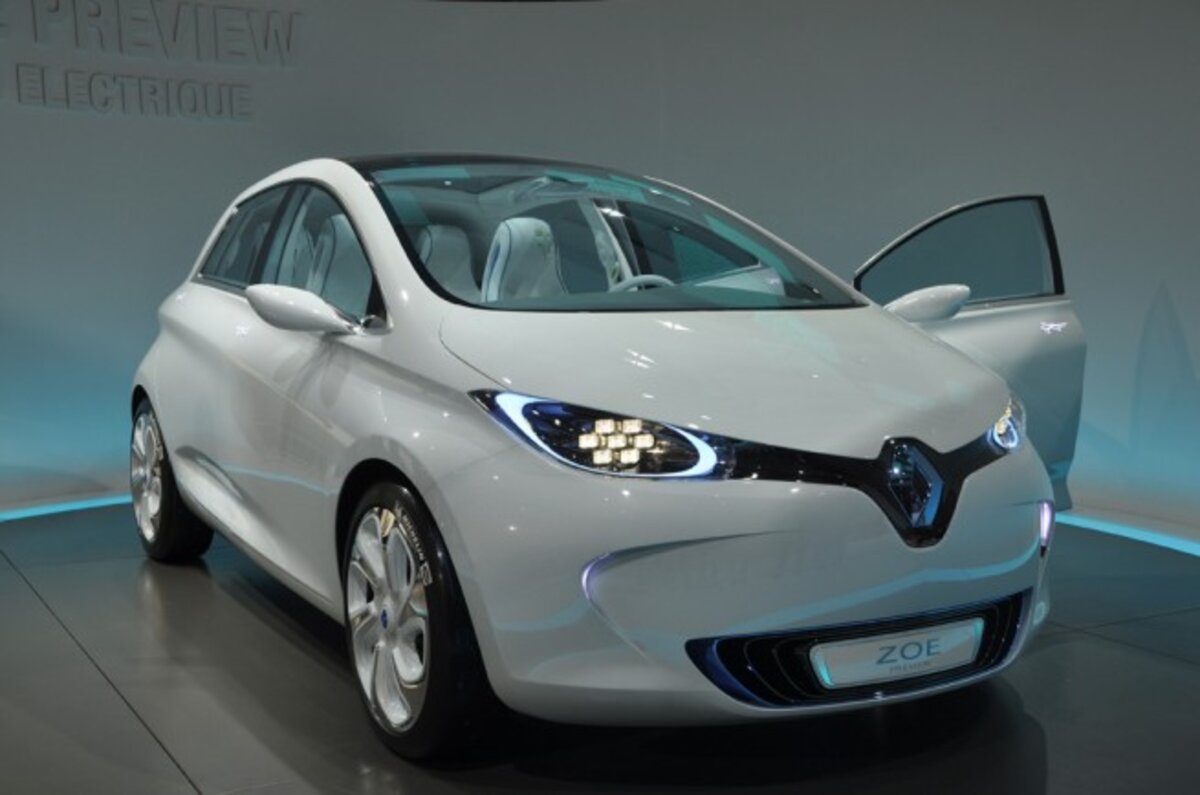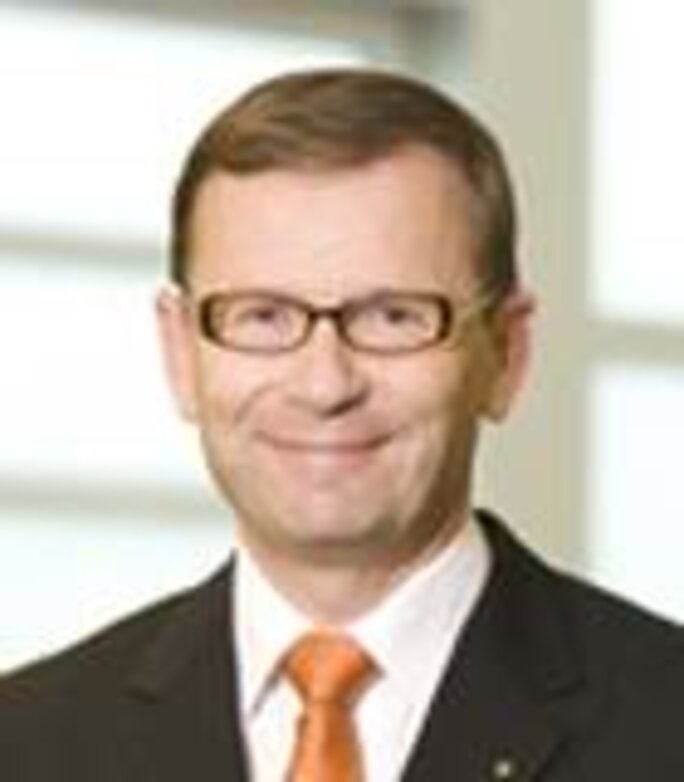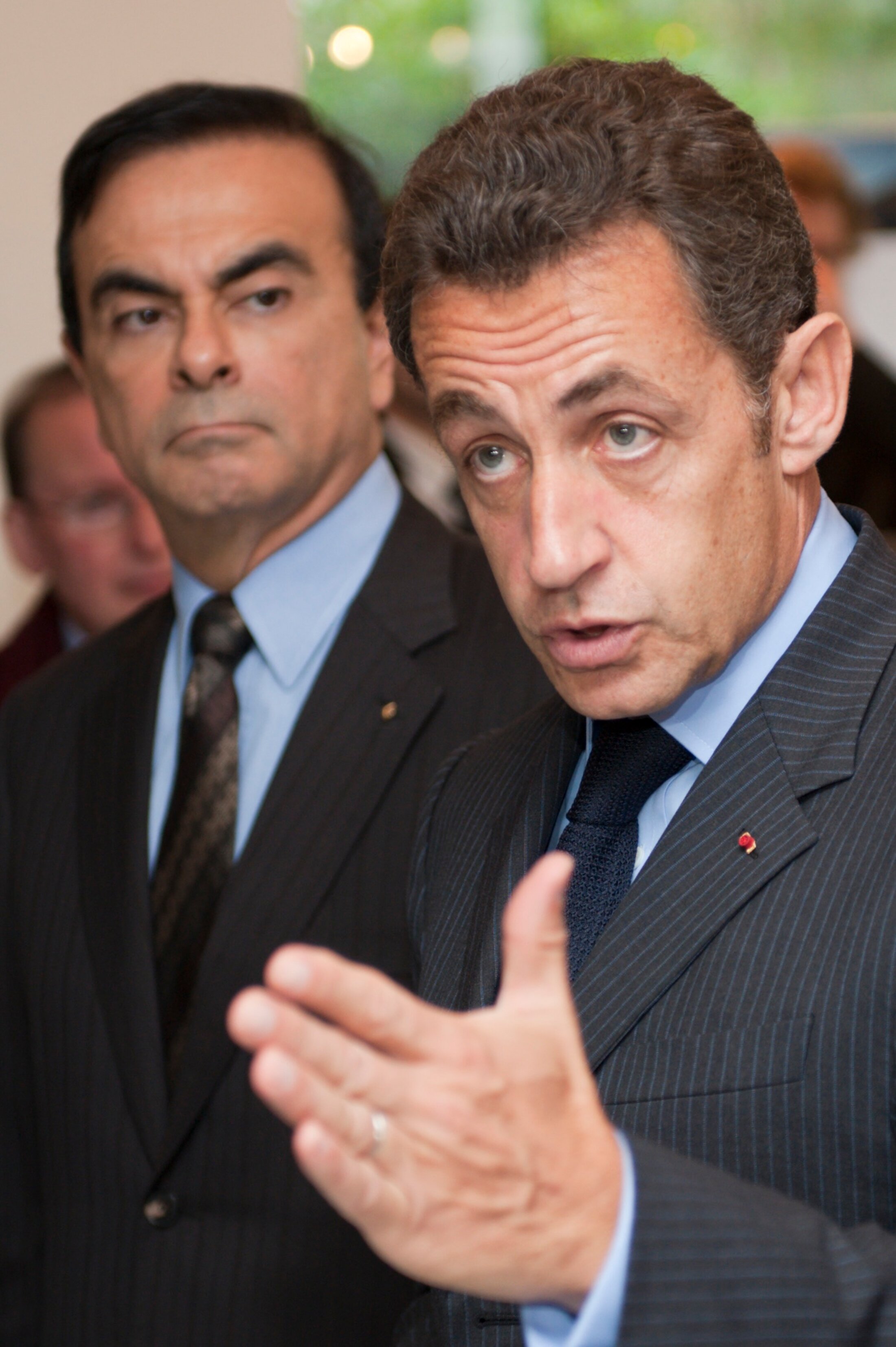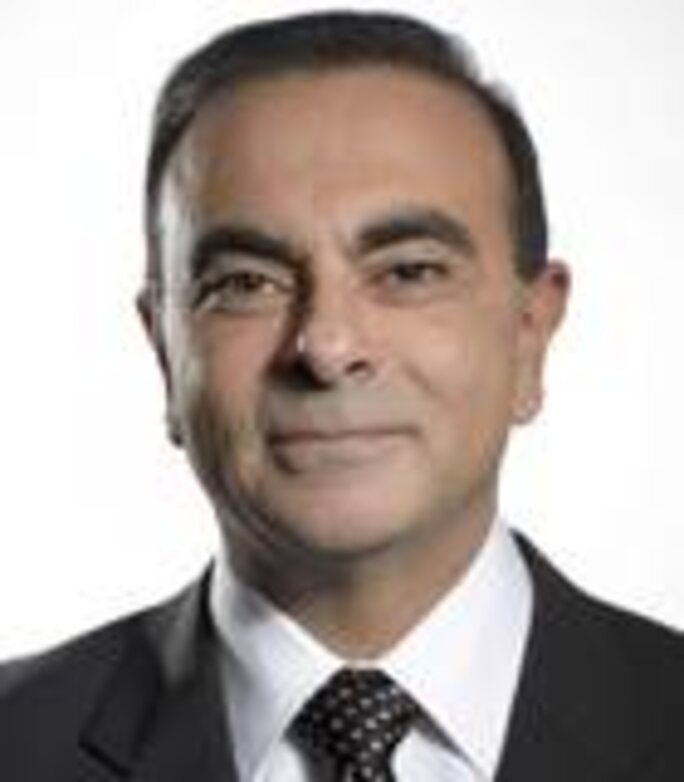The rumour mill is working overtime in the French business world and at Renault, where the carmaker's CEO Carlos Ghosn is fighting to keep his job after the fiasco of false espionage allegations saw three top executives fired on false pretences. Officially all is well, but Ghosn now faces a fierce battle against those determined to have his head for other reasons, not least French President Nicolas Sarkozy. Martine Orange and Laurent Mauduit report on the malaise surrounding the man at the wheel of one of France's industrial giants.
-------------------------
The forced resignation in April of Renault's Chief Operating Officer (COO), Patrick Pelata, put an official closure, in a corporate communications sense, on the industrial espionage scandal that had rocked French car-maker Renault since the beginning of the year.
Pelata, second in command behind CEO Carlos Ghosn, took the ultimate blame for the affair in which three of the company's executives, including one member of its management committee, were falsely accused of selling, via bribes paid to foreign bank accounts, secret information, notably about Renault's electric car development programme, to a third party which media rumours, fed by government officials, suggested were Chinese.

Enlargement : Illustration 1

The affair began in August 2010, after an anonymous tip-off was sent to the company's compliance committee. After the subsequent involvement of its internal security department, the three men - Michel Balthazard, senior vice-president of advance engineering, his number two Bertrand Rochette and Matthieu Tenenbaum, deputy head of the electric vehicle programme - were summarily dismissed from their jobs in January.
French industry minister Eric Besson was quick to denounce "economic warfare" being waged on one of France's leading industrial giants. Carlos Ghosn said there were "multiple" findings that indicated the espionage about which he was "sure". He insisted that the company's internal investigation into the case was "irreproachable" in legal terms.
But in March, after an investigation launched by the French domestic intelligence service, the DCRI, the affair was pronounced a hoax and the three men were totally cleared of any wrongdoing.
The three executives have received compensation, and one of them has accepted an offer to rejoin the company. An internal report on the false espionage scandal, carried out by the audit agency Bearing Point, has been presented as the final word on the issue. Renault has now sacked its security director Rémy Pagnie and two of his senior staff, Dominique Gevrey and Marc Tixador, who are collectively suspected of orchestrating the hoax to defraud Renault of payments to supposed informers. The three are now the subject of an ongoing judicial investigation.
The matter was officially put to rest during a well-orchestrated Renault annual general meeting in Paris on April 29th. Ghosn, 57, who is also CEO of Renault's partner Nissan, largely escaped unscathed, announcing to shareholders that the company was reviewing and reforming the internal procedures that failed in the fiasco.

But the manner in which the events have been concluded has left many feeling deep unease. As the Financial Times reported in March: "The company looks paranoid and careless, hardly the best image for a national symbol. The government is furious, the unions are stirring up, rivals must be gloating, and one wonders what will now happen to internal morale."
One board member, speaking anonymously to Mediapart, likened the situation to that of the bank Société Générale and its chairman Daniel Bouton after trader Jerôme Kerviel ran up 4.9 billion euros in losses through risky trade dealings.
"The situation cannot remain as it is," said the board member. "It's like allowing Daniel Bouton to run the Société Générale after the Kerviel affair. The board chose not to take any action on the spot. But the question of maintaining Ghosn as head of Renault remains. Eventually, the board members will have to act, because Ghosn cannot stay."
"Several Renault board members find that Carlos Ghosn got off too lightly," the source continued. "He is the real person responsible for the scandal. He even accepted his role on [Editor's note: television channel] TF1. He should have been fired after such a scandal. Patrick Pelata was sacrificed for the‘reason of state'. But we have got rid of the real operational head, who is much more useful to Renault than Carlos Ghosn."
But the attacks on Ghosn can be heard well beyond the boardroom. Once considered above criticism, the rising star who turned around Nissan's fortunes before taking the helm at Renault, he is now the subject of an active rumour mill swirling amid the world of Paris business leaders.
Ghosn has never been a member of those elite social circles comprised of the top executives of French industry, meeting informally at clubs and concerts, or for ceremonies when one of them collects the Legion d'honneur, France's civil merit award. Ghosn is more of a cosmopolite, part of the international set, and is not shy in letting it be known that he is a target for recruitment by other large automobile companies around the world, including in the US. He is known to have little time for his peers strutting around the closed world of the Parisian business elite.
This distance with them has been interpreted as contempt, and has fed animosity and jealousy. At a time when business leaders claim to be the target of hostile scrutiny by the media and public opinion over the size of their income, Ghosn has until now largely escaped any such inquisition, while being the highest-paid of them all, earning 9.4 million euros per year. For years he had managed to keep this confidential, by not publicising the 8 million euros earned from his joint position as chief executive of Nissan in Japan, which merged with Renault in 19991.
-------------------------
1: Renault holds 44.4% of Nissan stock, while Nissan holds 15% of Renault.
When Ghosn 'betrayed' Sarkozy
But beyond the tittle-tattle, more fundamental questions are also being asked of Ghosn's performance at Renault, and many observers argue that he has ill-served the interests of the French automaker in the balance of its alliance with Nissan. "The capitalistic chain of command is upside-down," commented one industry analyst. "Nissan is 44.4 per cent controlled by Renault, but Nissan is dictating strategy to its parent company."

Enlargement : Illustration 3

Despite its high-profile electric vehicle development, the rest of the range appears to be floundering. Its policy is oriented towards ‘low cost' vehicle production, turned to cheaper labour and investment in Romania or Spain. The historic, major production plant in Sandouville, in Normandy, is despite Ghosn's promises to the contrary, nearing the end of its life. The plant in Douai, north eastern France, looks to be heading the same way.
Changes in the company, notably Ghosn's drive on cost-cutting while increasing productivity, have created a climate of paranoia and malaise, as illustrated by a series of suicides by personnel at the Guyancourt ‘Technocentre' research plant near Paris1 , and the recent false espionage scandal.
Former Renault head Louis Schweitzer is among the foremost of Ghosn's critics. He begrudges being pushed out of any effective role in the company by the successor that he himself chose. Ghosn has never had the sense of the ‘quid pro quo' that predominates in the French business world, and instead of asking for help from his predecessor, or discussing a decision with him, he simply ignored him.
Schweitzer kept his frustration quiet for some while, until the false espionage debacle. In reported private conversations, the former Renault boss now accuses Ghosn of having betrayed the spirit and the letter of the alliance with Nissan, favouring the Japanese company over Renault.
Ghosn is no better appreciated by French President Nicolas Sarkozy, with whom he shares a cold and pragmatic relationship. Crucial to their mutual contact, beyond the importance of Renault as a leading French industrial giant and employer, is the fact that the French state owns a 15% stake in Renault. "Ghosn doesn't follow orders closely enough," said a former director of the company. "He has always thought it's enough to pay a visit to the Elysée [presidential offices] two or three times a year. He never ceases to let it be known that, as president of a global enterprise, he owes nothing to political power."
During the height of the financial crisis, the company received 3 billion euros in state loans (now partially repaid), when Ghosn was urged to promise re-investing in Renault's Sandouville and Douai plants. But while accepting financial assistance from the state, Ghosn made other arrangements behind the scenes to reduce the influence of the government in company policy.
This included taking advantage of a technical alliance with Germany's Daimler, which included a share swap, when he proposed reducing Renault's share in Nissan to less than 40 per cent. That would have given Nissan voting rights at Renault, which until then were frozen. Thus the state would have shared an equal stake - 15% - with Nissan the Japanese manufacturer, and Ghosn would have controlled Nissan's voting.
The move, which Sarkozy viewed as a complete betrayal, was discovered and halted at the last minute.
-------------------------
In a landmark decision earlier this month, a French appeal court on May 19th deemed Renault was "inexcusably at fault" in the suicide of a 39 year-old engineer at the Guyancourt Technocentre, who jumped from a fifth floor of the research facility after complaining of extreme stress due to his workload.Manouevres and turning circles
During the false espionage affair, Sarkozy demanded Ghosn's head. "And Ghosn just missed losing it by a hair," said one source close to the presidency.
Ghosn's role in the joint operations with Nissan likely saved him. He has gathered up the reins of management for Nissan and Renault, having built an opaque structure for control based in The Netherlands, with management decision-making in his own hands. Thus Ghosn plays a central and incontestable role in the alliance between the two companies, and is also the only executive that the Japanese accept.
The crucial board meeting over the industrial espionage fiasco was held after significant media speculation that Ghosn's departure might lead to the end of the alliance with Nissan. The lack of any informed feedback from Nissan on the issue may have fuelled government fears that this was indeed a possible outcome. Within this atmosphere, Pelata was forced to go and Ghosn kept his job.

Many are betting that Ghosn, despite his advantageous position, won't be able to resist the pressure from the Elysée for long. Amid a swell of rumours, and suspicions of plots afoot, any attempt by the government to re-take effective control of Renault would naturally begin with the appointment of a new COO to succeed Pelata.
Four internal candidates are officially up for thejob: Finance Director Dominique Thomann, director of Sales and Marketing Jérôme Stoll, director of Product Planning and Programmes, Philippe Klein, and the considered the favourite for the post, Nissan's North America Chairman, Carlos Tavares who is close to Ghosn.
But moves are reportedly underway at the French presidency to place its own candidate for the job. Alain Minc, an economist and political advisor close to the presidency, is rumoured to be at the head of a network of influence promoting the candidature of Alexandre de Juniac, principle private secretary to finance minister Christine Lagarde, herself a candidate to replace Dominique Strauss-Kahn as head of the International Monetary Fund. The manoeuvres are believed to include giving Juniac increased powers as COO, allowing him to gradually push Ghosn into non-executive functions, and thus to prepare his replacement without any significant organizational instability.
'Renault will explode if nothing changes'
Minc dismissed the claims outright. "You're taking me for a fool, it's an idiotic scheme" he said. "There is no other solution than to appoint a director from within Renault today, given the complicated situation the company is in." Alexandre de Juniac also dismissed the idea, while one well-placed source inside the finance ministry added that such a move was "quite simply impossible".
In this game of Chinese whispers, it is difficult to judge who stands to benefit from the rumours, which could even strengthen Carlos Ghosn's position in that it could serve to de-fuse any such move.
"For many board Renault board members, the illegitimacy of state intervention in the activities of a corporation is a key argument," commented one industry analyst. "Carlos Ghosn has cleverly played on this and avoided a boardroom ‘crisis' meeting."
The strange game of cat-and-mouse between the French government and Carlos Ghosn is creating a noxious and unhealthy atmosphere which the car manufacturer could do without in an enduringly troubled period. At the end of the company's annual general meeting on April 29th, one shareholder, with experience of previous annual general meetings, told Mediapart how he was struck by the silence of the congregation.
Speaking on condition of anonymity, he said only six people were allowed to raise questions. "Everything in this group is battened down," he said, "Even the unions don't have a word to say. If nothing changes, in two years Renault will explode, in one way or another."
-------------------------
English version: Andrew Rosenbaum and Graham Tearse
(Editing by Graham Tearse)


